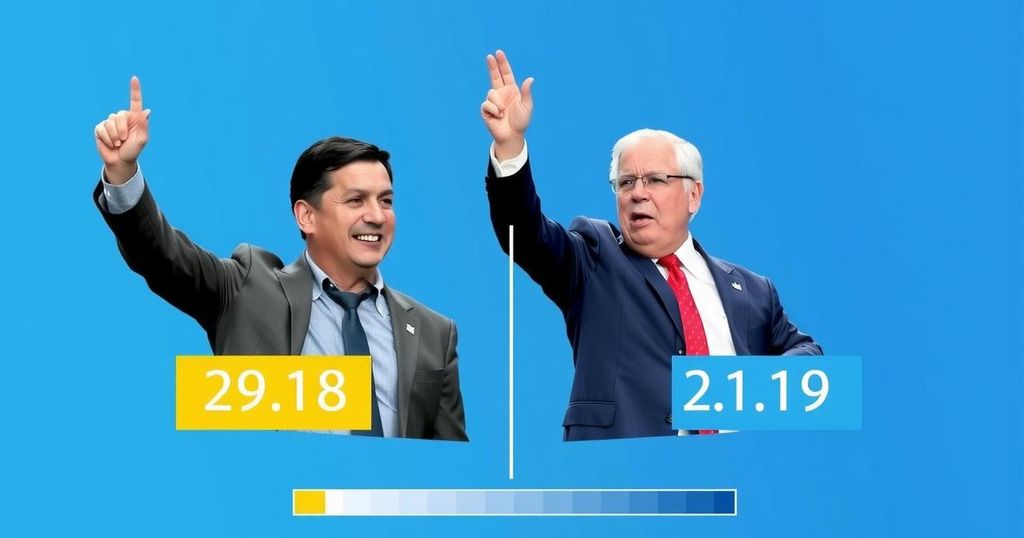Uruguay’s presidential runoff features Álvaro Delgado of the National Party against Yamandú Orsi of the Broad Front after neither achieved a majority in the first round. Both candidates address rising crime and economic issues, with Delgado seeking to follow current President Lacalle Pou’s policies, while Orsi aims for a new progressive approach. Voter engagement is high, showing a tight race with significant implications for the country’s future.
Uruguay’s presidential election has evolved into a surprisingly competitive runoff between two candidates: Álvaro Delgado from the conservative National Party and Yamandú Orsi of the left-leaning Broad Front. With neither candidate securing an outright majority in the initial round held on October 27, the second round has generated considerable interest. The Broad Front, which governed for 15 years, made significant progressive strides, such as legalizing abortion and same-sex marriage, and now seeks to reclaim leadership amid high-stakes debates surrounding social spending and income inequality.
Delgado and Orsi find themselves in a challenging contest against a backdrop of heightened concerns over rising crime rates affecting Uruguayans’ safety, with both candidates proposing differing solutions to address public security. Delgado, a rural veterinarian, seeks to maintain the policies of current President Luis Lacalle Pou, viewing the election as a referendum on his leadership. Conversely, Orsi, who is perceived as a successor to former President José Mujica, aspires to create a ‘new left’ while eschewing radical changes in governance.
Despite recent corruption scandals that momentarily affected Lacalle Pou’s administration, his coalition currently benefits from a strong economy, marked by growth projections of 3.2% this year and declining inflation. As the candidates campaign intensely for undecided voters, they strive to forge a connection with the electorate while emphasizing that their potential leadership will involve collaboration and unity in the event of a victory. Both Delgado and Orsi have expressed a commitment to a respectful transition of power, indicating their desire to work together regardless of the election outcome.
In advance of the election, the competition remained closely contested, with numerous polls indicating a tight race. Political analysts noted that the lack of polarization or populist sentiment within Uruguay differentiates it from other regions, allowing for civil political discourse among the candidates dealing with pressing national issues affecting the citizens. While public interest has been revived in the election process, many voters remain apprehensive regarding the direction of their country amidst an increasingly complicated social and economic landscape.
The political landscape in Uruguay has shifted dramatically following the rise of the National Party, which took power in 2019 after fifteen years of rule by the Broad Front. This runoff election is crucial, as it highlights the contrasting visions both parties have for the future of the country. Citizens are particularly engaged in discussions about social policies, safety concerns relating to crime, and economic stability, all of which shape their voting decisions. The previous government successfully implemented several progressive social reforms, and the current administration has maintained a focus on economic growth, further complicating the election dynamic as both parties vie for the support of undecided voters.
The upcoming presidential runoff in Uruguay signifies a crucial moment in the nation’s democratic process. With Álvaro Delgado and Yamandú Orsi representing diverging political ideologies, voters are faced with decisive choices that stem from pressing social issues, economic considerations, and public safety. As both candidates emphasize their commitment to cooperation and unity, the election outcome will play a significant role in directing the country’s future policies and governance approach. The competitive nature of this election showcases the evolving political challenges in Uruguay, making it a noteworthy event in Latin American politics.
Original Source: www.cnn.com






